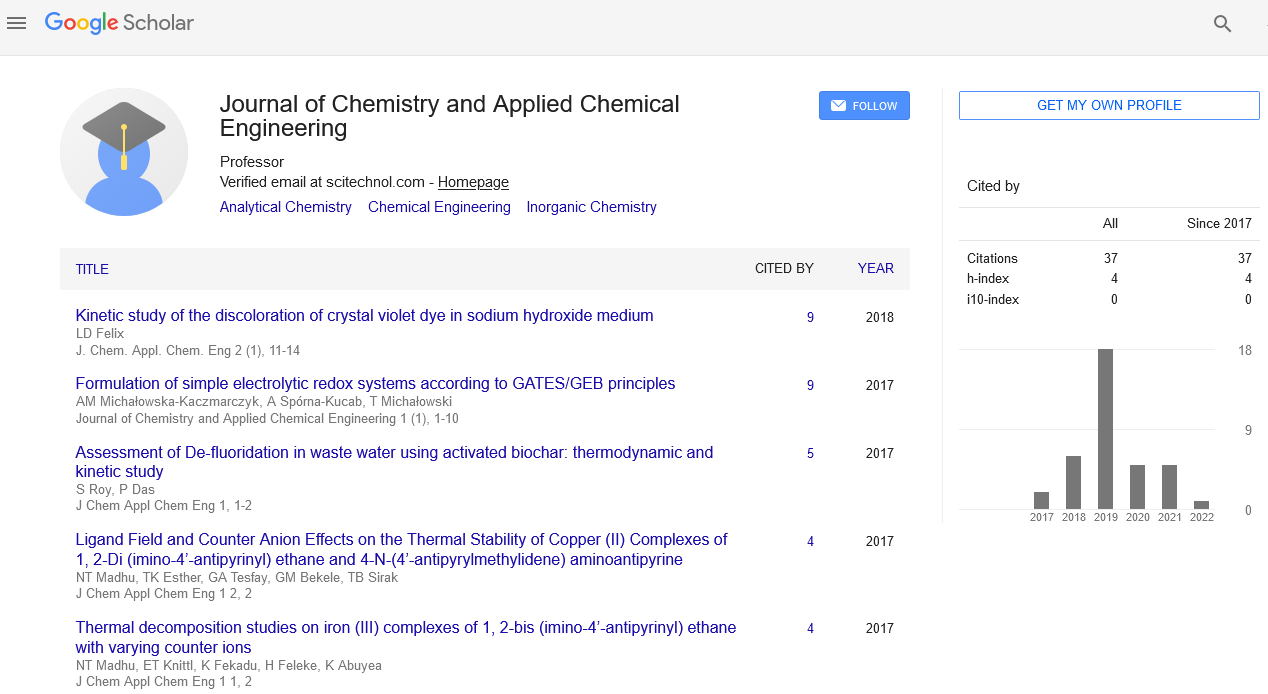Adaptability of power law exponential decline model for hydraulically fractured unconventional reservoirs during and after linear flow
Haijun Fan, Xueqian Zhu and Yemei Fan
China University of Petroleum, Qingdao, China
Sinopec Institute of Petroleum Exploitation and Development, Beijing, China
: J Chem Appl Chem Eng
Abstract
Reserve estimation of unconventional formations is a new challenge to reservoir engineers because of geological uncertainty and complex flow patterns evolving in the multi-fractured horizontal wells (MFHWs). Some predicting models have been presented and widely used in MFHWs exhibiting a long term linear flow, such as stretched-exponential production-decline (SEPD), power law exponential decline (PLE) and Duong’s model. Plenty of field successful applications of these models seem to have demonstrated their availability and correctness especially in the transient linear flow period. Due to the limitation of reservoir boundaries or size of stimulated volume, any fractured tight reservoir will eventually evolve into a boundary-dominated-flow (BDF). The models above that show “goodness of fit” in linear flow may not be used or will cause great error when used to predict production in BDF period. This paper compared the newly developed models with the traditional Arps’ hyperbolic decline model in terms of production historic match, limit production and ultimate reserve during and after linear flow. The result shows that PLE and SEPD model cannot work well both in linear and boundary-dominated flow. The wrong usage of the model will cause great error to the reserve estimation. The right predicting steps to predict production when BDF appears is given in this work. The outcome of this work should help the industry to forecast rate production more accurately in tight oil and shale gas reservoirs.
Biography
Haijun Fan is an associate professor from China University of Petroleum who has research interest in oil & gas field development optimization and dynamic analysis, well test, hydraulic fracturing. He has developed several software about reservoir engineering which successfully used in oil fields. He holds MSc and PhD degree from China University of Petroleum.
E-mail: petroengineer@126.com
 Spanish
Spanish  Chinese
Chinese  Russian
Russian  German
German  French
French  Japanese
Japanese  Portuguese
Portuguese  Hindi
Hindi 